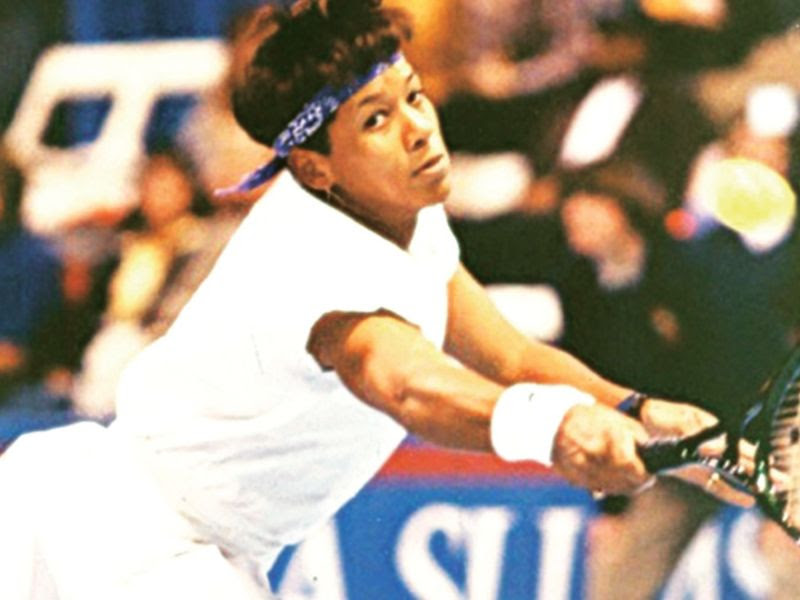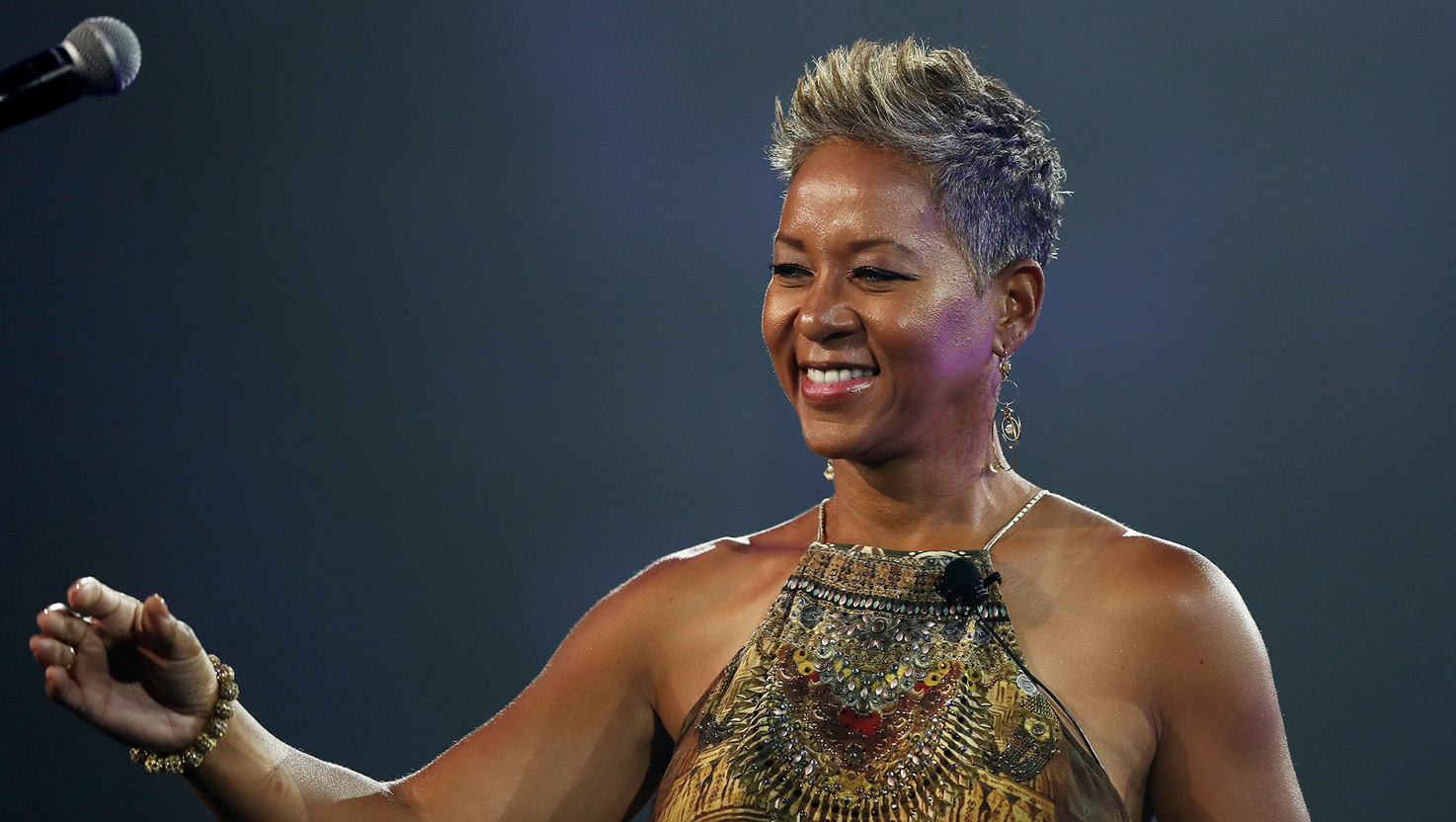By Giri Nathan
It’s a strange time to be thinking about tennis—or, at least, to think about tennis removed from the context of everything roiling off the court. In this week’s episode of The Racquet Magazine Podcast, Caitlin and Rennae spoke to Katrina Adams, who was president of the USTA from 2015 to 2018, where she worked to make tennis a more inclusive game. The pod is a wide-ranging talk with a woman who can claim many firsts: the USTA’s first black president, its first former professional player president, and its youngest-ever president.
Adams, who lost both her parents in the past year and contracted COVID-19 in March, said she’d been dealing with pain on both a personal and national scale: “It’s been very difficult these last few weeks, and on top of that, we have the killing of George Floyd in Minneapolis, which the world has watched. The world has grieved. The world has supported me in many ways. And the world has left me in many ways, so it’s been a tough few weeks. But every day I’ve got to put one foot in front of the other and try to move forward and try to make sense in light of everything and figure out what’s the point of my existence in this world, in America.”
“I was president of the USTA for four years. And the biggest thing that I really talked about a lot was obviously diversity and inclusion, because here we go, right? It’s not hard to see when I walk in the room, but I’m black, and I’m diverse, and trying to really grow our sport, and get more kids of color engaged with the sport,” Adams said.
She was asked how she would handle the present moment if she were still at the helm of the USTA. “Tomorrow, I would speak about what’s happening right now and how it has affected future players of our sport. And the fear that has been injected in these young black kids of wanting to go into these white communities to play in tournaments, because of the fear of how they’re going to be looked at, how they’re going to be viewed, and wondering if they’re going to show up at home alive. It’s a problem, and we have a problem already in the sport, where people are who they are, and their true colors come out. And you know, I often receive complaints from parents, where their kids have been called the N-word, or they’ve been called the N-word at tournaments. And that they’ve been overtly cheated by officials or whomever, because it’s real. And of course, I receive those, I understand them, I believe them. And I take it to the powers that be within the organization to do something about it.”
Adams, who began working with Tennis Channel in the aughts, also touched on the value of having black voices in the commentator’s booth, to offer context for what’s unfolding on the court.
“But you need to have these people on air. So when anything comes up, they can talk about it. When James Blake was playing Lleyton Hewitt, and Lleyton made the comment to the umpire, he knew what he was saying, but he didn’t really understand the impact of it because he doesn’t live in America. He doesn’t understand what that means, and what that implies,” she said, referring to the 2001 US Open match where Hewitt accused a black linesman of favoring Blake. “It’s the underlying comments that the people that are saying [these things], do not understand how hurtful they are. You are a peer of mine that I have respected, we eat in the same restaurants, we’re in the same locker rooms, we’re sharing all these things together, trying to be the best that we can be. But you have just torn me down.”

Adams is at her most candid discussing the challenges of giving a speech in front of a confused, hostile crowd immediately after the 2018 US Open final between Naomi Osaka and Serena Williams.
“The ceremony starts, and I’ve got butterflies inside because I can’t believe what has just transpired in the crowd, and her outbursts on the court, et cetera. And so you start the trophy presentation, and Tom Rinaldi says, ‘Welcome to the United States Tennis…’ And, like, 20,000 people are booing, and I’m going, ‘Oh, shit.’ Like smiling, but going, ‘Wow.’ Right. So you don’t know what that feels like to be on the receiving end. And after he says that, ‘Here’s the chairman and president of the USTA.’ And I’m looking at him going, ‘Now? You want to give me the mic now?’”
Though she is happy with what she did with that microphone. “Things happen for a reason. I was in that role for a reason. Because I could empathize with the players, with the situation, with the umpire, with everybody that was involved, right? Because I was that player, and now I’m that person of color. And because of that, you know, I went off script,” Adams continued. “And I’m proud of what I did and how I handled it. And you’re right, it was the right person, because I will tell you that my successor—I got back in the suite, and he said, ‘Oh, boy, better you than me, because I don’t know how I would have dealt with that.’”
Katrina Adams at the opening ceremony for the 2016 US Open. (Getty Images)
Listen Now
The Racquet Podcast
The longtime WTA player, former President of the USTA and tennis leader Katrina Adams joins us to speak directly to the ongoing battle against white supremacy, hows she leads for change and about that contentious US Open Women’s Final.



